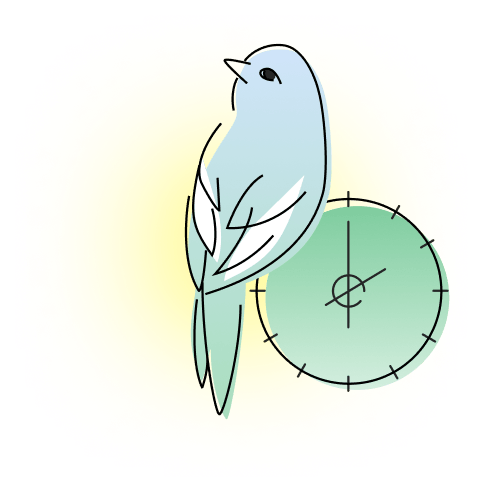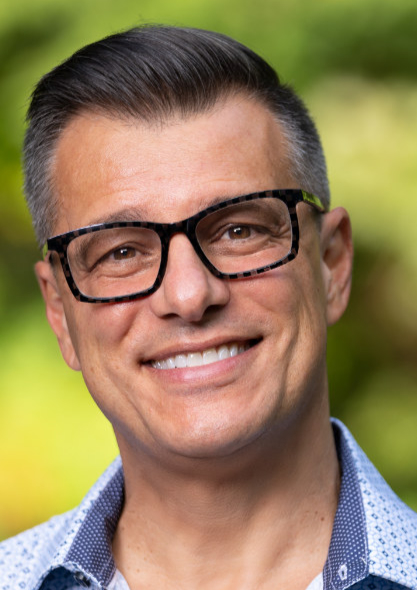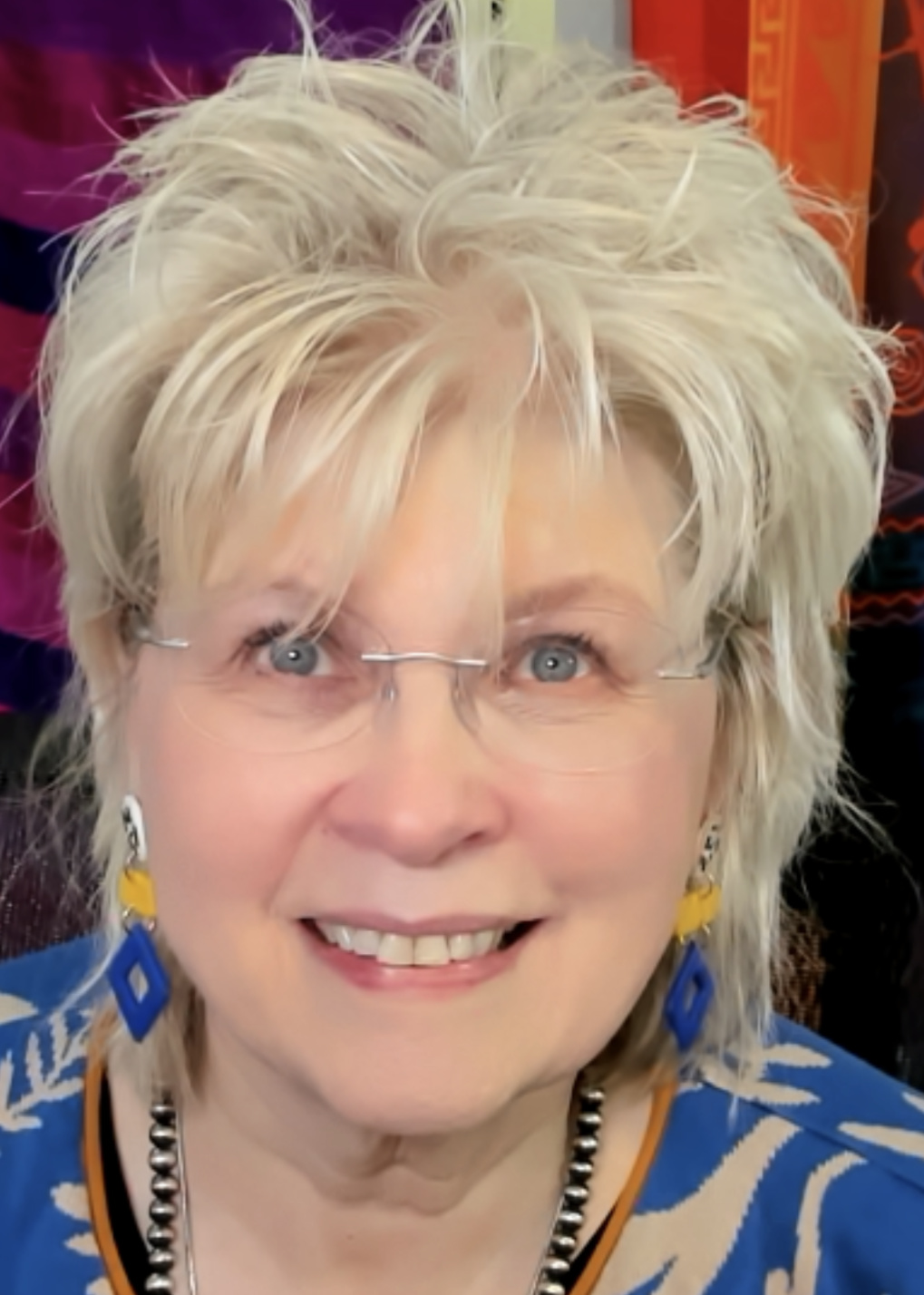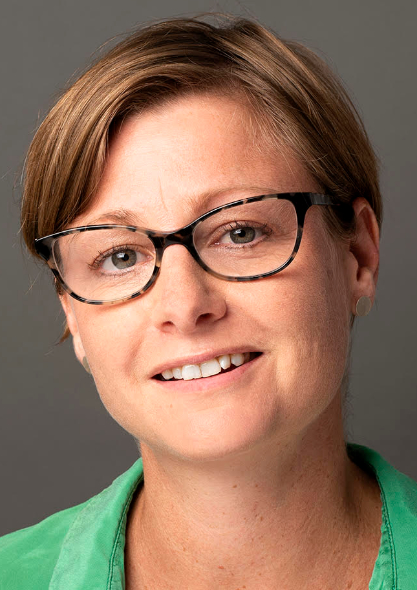
Integrating Somatic Techniques in Therapy
Starting September 16
11 Teachers
13 Workshops
Practice Facilitators
55 Hours in Total
Live + Recording
EXPERIENTIAL ACTIVITIES:
13 Guided Somatic Explorations
13 Practice Circles
Demo Sessions
Q&A Sessions
Case Consultations


Bringing the body into the therapy
Being aware of the importance of bringing the body into the therapy process, you may have asked yourself these questions:
How to effectively introduce somatic techniques into your therapy room (regardless of the modality you use)?
How to invite clients to experience somatic interventions (especially those, who are hesitant to try new things)?
How to effectively use somatic techniques while working online?
How to choose the right somatic tools for specific issues?


We have prepared a 3-month (55 hours) online training with
some of the leading minds in the field of somatic therapy to provide detailed answers to these questions.
About our 3-Month Somatic Therapy Training



By attending this training, you will:
- Acquire a set of somatic skills and tools, learn how and when to use them, and how to integrate them into a therapy session regardless of your primary therapy modality.
- Gain confidence in explaining and introducing somatic work, even to clients who are hesitant and skeptical (along with a list of strategies for dealing with client objections to somatic techniques).
- Learn how to safely use somatic techniques both in-person and online.
- Experience somatic explorations on your own, allowing you to connect with your body and truly embody the somatic approach to psychotherapy.
- Support your clients in recognizing and processing trauma that has been stored in the body.
- Connect with like-minded mental health professionals in a safe space for practice, sharing, Q&A, and networking.
- Save time researching various somatic tools and be introduced to ones that are known to be effective, useful, and easy to integrate into your practice.

✨ Integrating Somatic Techniques in Therapy ✨
3rd Edition of Our Best-Selling 3-Month Online Training

✨ Integrating Somatic Techniques in Therapy ✨
3rd Edition of Our Best-Selling 3-Month Online Training
Learn core concepts of somatic therapy, gain effective somatic tools, and integrate them into your practice.
By signing up for our 3-month Somatic Therapy Training you get:
-
Live access to 13 Online Workshops led by 11 experienced teachers.
-
13 Guided Somatic Explorations (30 minutes each) with Elia Mrak, Joanne Lutz, and Birgit Löwenbrück.
-
13 Practice Circles (each 50 minutes long) – a space for practicing somatic techniques in small groups guided by a Practice Facilitator.
-
All-time access to the Workshops and Guided Somatic Explorations recordings – no time limits.
-
3 Bonuses worth $371 – workshop recording with Janina Fisher, Introduction to IFS Course, and access to Somatic Summit recording.
-
A Certificate of Completion.

Super Early Bird Price (a $300 discount) is available until June 12th or until the first 100 seats are sold out, whichever occurs first.

Satisfaction Guarantee
Up to 7 days after the first workshop, if you are not completely satisfied just let us know about it. We will give you a full refund. You are not required to give any reason.
You have nothing to lose!

A Unique Learning Structure That Supports Your Practice
Over 400 mental health professionals have benefited from our previous 3-month trainings. Our experience has allowed us to refine and perfect our original structure, which goes beyond a typical workshop and includes:
- 🎓 Experiential Workshops 🎓 – led by experts: Frank Anderson, Deb Dana, Bessel van der Kolk, Sharon Stanley, Linda Thai, Peter Levine, Cathy Malchiodi, Alexia Rothman, Jacqueline Compton, Giten Tonkov, and Tracy Jarvis.
- 💠 Guided Somatic Experiences 💠 – a 30-minute live sessions to explore practices that support trauma work led by Elia Mrak, Joanne Lutz, and Birgit Löwenbrück.
- 🔆 Practice Circles 🔆– a 50-minute small group Practice Session (8-10 participants) guided by a Practice Facilitator.
- 💻 Case Consultation Calls 💻 – three 2-hour online meetings designed to provide personalized guidance.
13 weeks of Tuesday sessions
Workshops
2 hours
Short Break
10 minutes
Guided Somatic Explorations
30 minutes
Practice Circles
50 minutes

Date & time
Dates:
September 16, 23, 30, 2025
October 7, 14, 21, 28, 2025
November 4, 11, 18, 25, 2025
December 2, 9, 2025

Start hours:
All the Workshops and Guided Somatic Exploration sessions followed by meetings in Connection Circles will start at:
08:00-11:30 PDT/PST
Los Angeles
11:00-14:30 EDT/EST
New York
16:00-19:30 BST/GMT
London
17:00-20:30 CEST/CET
Warsaw

*Due to the time change in Europe, we will start the Workshop on October 28 one hour earlier in Europe: 15:00 GMT (London) | 16:00 CET (Warsaw)
Check the training calendar and see all the events in your timezone
Meet the teachers who will lead the training
Workshop Schedule
This opening workshop sets the stage for the entire training, introducing the core principles of somatic psychotherapy through the lens of Tracy Jarvis’s personal journey and clinical experience. You’ll receive a clear overview of the program’s structure, the intention behind each module, and how diverse faculty perspectives will enrich your learning. We’ll explore the range of somatic techniques you’ll encounter throughout the training—emphasizing flexibility, consent, and choice in experiential activities—and introduce foundational concepts such as the bottom-up approach, various types of somatic therapy, and how body-based work compares to traditional talk therapy. The session concludes with a preview of upcoming workshops to help you orient yourself in the learning process.
How This Workshop Will Support Your Practice:
- Provides a clear roadmap of the training and how each module supports your development.
- Helps you begin integrating body-based awareness into your therapeutic lens.
- Clarifies the distinctions and advantages of somatic therapy compared to talk therapy.
- Introduces safety-oriented, flexible ways to explore somatic techniques with clients.
- Prepares you to recognize and apply a variety of somatic tools based on client needs.
This workshop offers a foundational exploration of how trauma lives in the body and why somatic approaches are essential to healing it. You’ll be introduced to key trauma theories and concepts we’ll revisit throughout the training, including how trauma is stored as non-verbal memory, the role of the autonomic nervous system, and the contrasts between top-down (talk therapy) and bottom-up (somatic) approaches. We’ll explore attachment trauma, the window of tolerance, neuroplasticity, and the triune brain model, while also integrating different therapeutic models to build a comprehensive view. Through guided pauses, participants will be invited to notice their own responses as they learn, and two live mini-demos will offer a felt sense of working with bodily sensation. The session also emphasizes empathy, compassion, and the importance of normalizing trauma responses—what may seem irrational often has deep physiological roots.
How This Workshop Will Support Your Practice:
- Equips you with a somatic understanding of how trauma is stored and processed in the body.
- Deepens your ability to recognize and work with pre-verbal and non-verbal trauma material.
- Clarifies the limitations of talk therapy alone and the value of integrating somatic approaches.
- Introduces practical tools like tracking sensation and using the window of tolerance in session.
- Builds your confidence in normalizing trauma responses and fostering client self-compassion.
TBA
This workshop brings somatic therapy into practical focus, exploring how to skillfully apply body-based tools in trauma work. You’ll examine the distinctions between traditional phase-oriented trauma treatment and its somatic counterpart, and gain insight into how to assess and prepare clients for somatic work. Special attention is given to clients who are disconnected from their bodies or not yet ready for somatic engagement, and how to introduce mindfulness, present-moment awareness, and trauma symptom tracking in a safe, gradual way. The session also covers concrete somatic techniques to support nervous system regulation, culminating in a live demonstration to show how these tools come to life in clinical practice.
How This Workshop Will Support Your Practice:
- Helps you assess client readiness for somatic trauma work and adapt your approach accordingly.
- Provides strategies for introducing mindfulness and present-moment awareness to trauma survivors.
- Offers practical somatic techniques for regulating the nervous system in-session.
- Clarifies the differences between general and somatic phase-oriented trauma treatment.
- Builds your confidence in integrating somatic tools safely and effectively in the therapy room.
In this special two-part session, you’ll witness a dynamic dialogue between a leading voice in somatic psychotherapy—Peter Levine and Sharon Stanley—followed by a live experiential segment. The workshop focuses on core elements of trauma-informed somatic work, including an introduction to the autonomic nervous system (ANS), the principles of neuroplasticity, and a demonstration centered on energetic boundaries. This session offers both theoretical depth and embodied insight, highlighting how foundational somatic concepts translate into practical therapeutic tools.
How This Workshop Will Support Your Practice:
- Deepens your understanding of the ANS and its role in trauma and regulation.
- Introduces the concept of energetic boundaries through a live demonstration.
- Enhances your ability to explain and apply neuroplasticity in therapeutic work.
- Offers unique insights from two experts in somatic psychotherapy.
- Strengthens your capacity to integrate somatic awareness into relational presence.
This workshop brings Polyvagal Theory to life with a practical focus on how understanding the nervous system can transform therapeutic presence and outcomes. Deb Dana introduces the theory’s core principles—including its emphasis on the nervous system’s role in shaping emotions, trauma responses, and relational dynamics—alongside a clear overview of autonomic states. You’ll learn how to help clients create personal anchors (relationships or memories that offer a felt sense of safety) and touchstones (physical cues that support self-regulation). The session highlights how therapists can recognize and respond to clients’ physiological states to deepen connection and effectiveness, and includes a live demo and Q&A to support direct application in your practice.
How This Workshop Will Support Your Practice:
- Deepens your understanding of nervous system states and their influence on trauma and connection.
- Introduces practical tools like anchors and touchstones to support client regulation.
- Equips you to apply Polyvagal Theory to strengthen therapeutic attunement and safety.
- Demonstrates real-time application of theory through a live demo.
- Provides direct access to one of the leading voices in applied Polyvagal Theory.
This workshop bridges Internal Family Systems (IFS) with Polyvagal Theory to offer a deeply integrative, somatically attuned approach to working with parts. You’ll explore how polyvagal-informed IFS therapy supports healing by aligning the concept of Self and parts with nervous system states—clarifying how fight, flight, freeze, and collapse responses influence internal dynamics. Special attention is given to working somatically with preverbal and nonverbal parts, using the body’s cues to detect and connect with wounded or burdened parts. You’ll gain practical techniques for helping clients safely witness and integrate these parts while building neural pathways for safety, connection, and resilience. This approach supports both psychological integration and nervous system regulation, expanding your therapeutic range when working with trauma.
How This Workshop Will Support Your Practice:
- Integrates IFS and Polyvagal Theory to deepen your understanding of parts and nervous system states.
- Equips you to detect and engage parts that express through bodily sensations or somatic cues.
- Provides tools for helping clients safely connect with, heal, and integrate wounded parts.
- Supports co-regulation and resilience through body-based IFS techniques.
- Expands your capacity to work with trauma in both verbal and nonverbal dimensions.
In this workshop, you’ll explore the foundational principles of Sensorimotor Psychotherapy, a body-focused therapeutic approach that integrates somatic awareness with cognitive and emotional healing. Jacqueline Compton will guide you in accessing the body’s inherent wisdom, cultivating skills in somatic inquiry, and deepening your understanding of bottom-up processing. The session emphasizes the importance of developing a mindful relationship with present-moment experience, strengthening your capacity for self-reflection, curiosity, and embodied presence. These skills will enhance your ability to work with clients at a somatic level, fostering lasting transformation through mindful engagement with the body.
How This Workshop Will Support Your Practice:
- Introduces foundational techniques of Sensorimotor Psychotherapy for trauma resolution.
- Develops skills in somatic inquiry to enhance your therapeutic presence.
- Strengthens your ability to integrate bottom-up processing into your practice.
- Cultivates mindfulness and self-reflection to deepen client connection.
- Expands your capacity to invite the body into therapeutic work, fostering holistic healing.
This workshop introduces Biodynamic Breathwork as a powerful tool for trauma release, exploring its six core elements and supporting principles. You’ll learn how to incorporate techniques such as pendulation, titration, and working with the felt sense to support clients in navigating stored trauma. Emphasis will be placed on identifying and tracking somatic sensations, using specific language to describe these experiences, and staying present with them to foster deeper awareness and healing. The session includes a guided experiential to help you integrate these practices directly into your therapeutic approach.
How This Workshop Will Support Your Practice:
- Introduces Biodynamic Breathwork as a tool for trauma release and healing
- Develops skills in pendulation, titration, and tracking somatic sensations with clients
- Strengthens your capacity to use somatic language to support client awareness and processing
- Enhances your ability to stay present with clients’ sensations and emotional experiences
- Provides a direct, embodied experience of integrating breathwork into therapeutic practice
This workshop explores the dynamics of developmental trauma and the common resistance that arises in trauma therapy. You’ll gain an understanding of why resistance occurs, especially in clients who feel unsafe or are unable to process trauma, and learn strategies to address it effectively. Focus will be placed on resistance as a protective mechanism, particularly in cases rooted in dissociation or avoidance. The session will introduce practical strategies for working with resistance, including slowing the pace of therapy to build safety and connection. Additionally, we’ll explore the challenges and techniques of integrating somatic work into online therapy, ensuring that clients receive effective support, regardless of the format.
How This Workshop Will Support Your Practice:
- Offers a deeper understanding of resistance in trauma therapy and its protective functions.
- Provides strategies for addressing and working through resistance in a trauma-sensitive way.
- Strengthens your ability to slow down pacing and build safety with resistant clients.
- Introduces somatic techniques to help regulate the nervous system in trauma work.
- Expands your skills in integrating somatic work into online therapy sessions.
TBA
This special workshop offers an engaging mix of interview and live demonstration, providing insight into core therapeutic dynamics. Frank Anderson and Tracy Jarvis will guide you through the exploration of core wounds—focusing on themes like isolation and abandonment—and how these play out in both clients and therapists. The session includes a live group demonstration, offering a hands-on experience of these concepts in action. You’ll also explore your role as a therapist, reflecting on what emerges in you when thinking about your clients and how your own experiences and presence influence the therapeutic process.
How This Workshop Will Support Your Practice:
- Explores core wounds of isolation and abandonment and their impact on both clients and therapists.
- Provides insight into your role as a therapist and how your internal world influences therapeutic work.
- Offers a group demo to deepen your understanding of these dynamics in real-time.
- Encourages self-reflection on what emerges in you when working with clients.
- Enhances your ability to engage with core wounds compassionately and effectively.
In this final workshop of the series, Bessel van der Kolk and Tracy Jarvis will guide you through an integration-focused session, helping you consolidate and apply the techniques you’ve learned throughout the training. You’ll engage in an experiential process, exploring what aspects of somatic therapy you feel most drawn to and how to tailor these tools to suit specific clients and situations. The session will also address how to avoid feeling overwhelmed by the wide range of techniques, offering clear guidance on the dos and don’ts of somatic therapy. Finally, you’ll discuss possible next steps for deepening your somatic therapy practice, culminating in a closing ritual that honors your journey and growth.
How This Workshop Will Support Your Practice:
- Provides strategies for integrating somatic therapy tools into your own practice with confidence.
- Helps you identify which somatic techniques are most aligned with you and your clients.
- Addresses the challenge of feeling overwhelmed by the variety of techniques and approaches.
- Clarifies the essential dos and don’ts of somatic therapy to guide your ongoing work.
- Offers direction for exploring next steps and continuing your professional growth in somatic therapy.
Skills and tools that will be presented and practiced include
- Working safely with both big “T” and small “t” trauma.
- Identifying body memories that the client may not be able to verbalize (and accessing those memories safely).
- Gradually introducing (titrating) mindful interventions for a client who may find it too overwhelming to slow down.
- Helping clients understand that confusing symptoms are normal and building trust in the therapeutic relationship.
- Understanding what a “bottom-up” versus a “top-down” approach is and how they can be integrated.

- Developing an understanding of how dissociation can aid in survival.
- Recognizing transference and countertransference as they happen somatically.
- Explain how trauma affects the brain and the body’s survival responses to stress.
- Be able to recognize somatic manifestations of trauma & shock on the body.
- Explain the importance of trauma release within the window of tolerance.
- Identify different types of trauma and connect them to mental and physiological symptoms.
What past participants say about this training

Special bonuses worth $371
By enrolling in this Somatic Therapy Training now, you will also gain access to:
- A 12-day ‘Introduction to Internal Family Systems’ course, created by Michael Pasterski, founder of Life Architect and a Certified IFS Practitioner. IFS is an evidence-based therapy modality focusing on parts work, developed by Dr. Richard Schwartz. The course provides a comprehensive overview of this model, including extensive personal practice for you to experience parts work on yourself.
- An on-demand Janina Fisher’s workshop ‘Integrating Mind-Body Techniques into Talking Therapies’. In this workshop, Janina reviews recent neuroscience research that explains how traumatic experiences become embedded in both mind and body, extending the trauma far beyond the original events.
- A recording of the 1-day Summit ‘Restoring Mind-Body Connection with Somatic Therapy’. This includes over 6 hours of videos featuring experts such as Janina Fisher, Giten Tonkov, Elia Mrak, Irina Diyankova, Tamu Thomas, and Vincentia Schroeter.
Workshop in numbers
13 Workshops
11 Teachers
13 Somatic Explorations
13 Practice Circles
55 Hours in total

Frequently Asked Questions
If you have participated in our other workshops about Somatic IFS or Polyvagal Theory this training will still be valuable to you. It creates a larger, coherent whole and is focused on practical aspects of these modalities.
If you are not applying for the CE hours, you do not need to be present at all live workshops. You can watch their recordings. After completing the training, you will receive a certificate of attendance from Life Architect (with no extra cost).
We do not offer CE hours for watching the recordings because NBCC credit cannot be provided for the recorded portions of the program. To receive CE hours for each workshop, you must participate in the live interactive online Zoom workshop.
We will ask you for invoice details before making the payment. Please note that the seller of the workshops is a Polish company Life Architect Michał Pasterski Spółka Komandytowa, registered for VAT.
Name of the seller: Life Architect Michał Pasterski Spółka Komandytowa (Company registered under laws of Poland)
- Address: ul. Narcyzowa 11, 60-175 Poznań, Poland
- National Court Register Number: 0000973301
- Tax Identification Number: 7792539585
- e-mail address: kontakt@lifearchitect.pl
- Phone: +48 518 501 701
The Seller is a company registered under the laws of Poland and issues VAT invoices in accordance with Polish law. If you are purchasing services from the Seller as an entrepreneur and you need a VAT invoice, consult your tax advisor on the necessary requirements for invoices for the purchase of services.
The GTC found on this website shall apply respectively, with the stipulation that Polish law shall apply to contracts concluded with the seller.
The Data Controller of your personal data is Life Architect Michał Pasterski Spółka Komandytowa based in Poznań, Poland. The owner of this website collects and transfers your personal data to the Data Controller as the processing entity, acting under documented instructions from the Data Controller. Information about the processing and protection of your personal data by the Data Controller can be found here: Market Place Information Clause.
Below you will also find the document outlining the terms under which our trainers will provide you with the training materials and recordings from the “Integrating Somatic Techniques in Therapy” training (commonly known as an End User License Agreement, or EULA). Please note that this document does not affect the workshop itself, including its schedule or delivery. If you agree with the content, no further action is required on your part. Please read the End User License Agreement.
Absolutely! We’re happy to offer an exclusive discount for participants from the first (2023) or second (2024) edition of the training. This special offer is our way of thanking you for your continued interest and engagement. To learn more, feel free to contact us at hello@lifearchitect.com.
We are currently in the process of applying for Continuing Education (CE) hours for our upcoming 3-month Therapy Strategies for Complex Trauma Online Training. Detailed information will be available soon.















